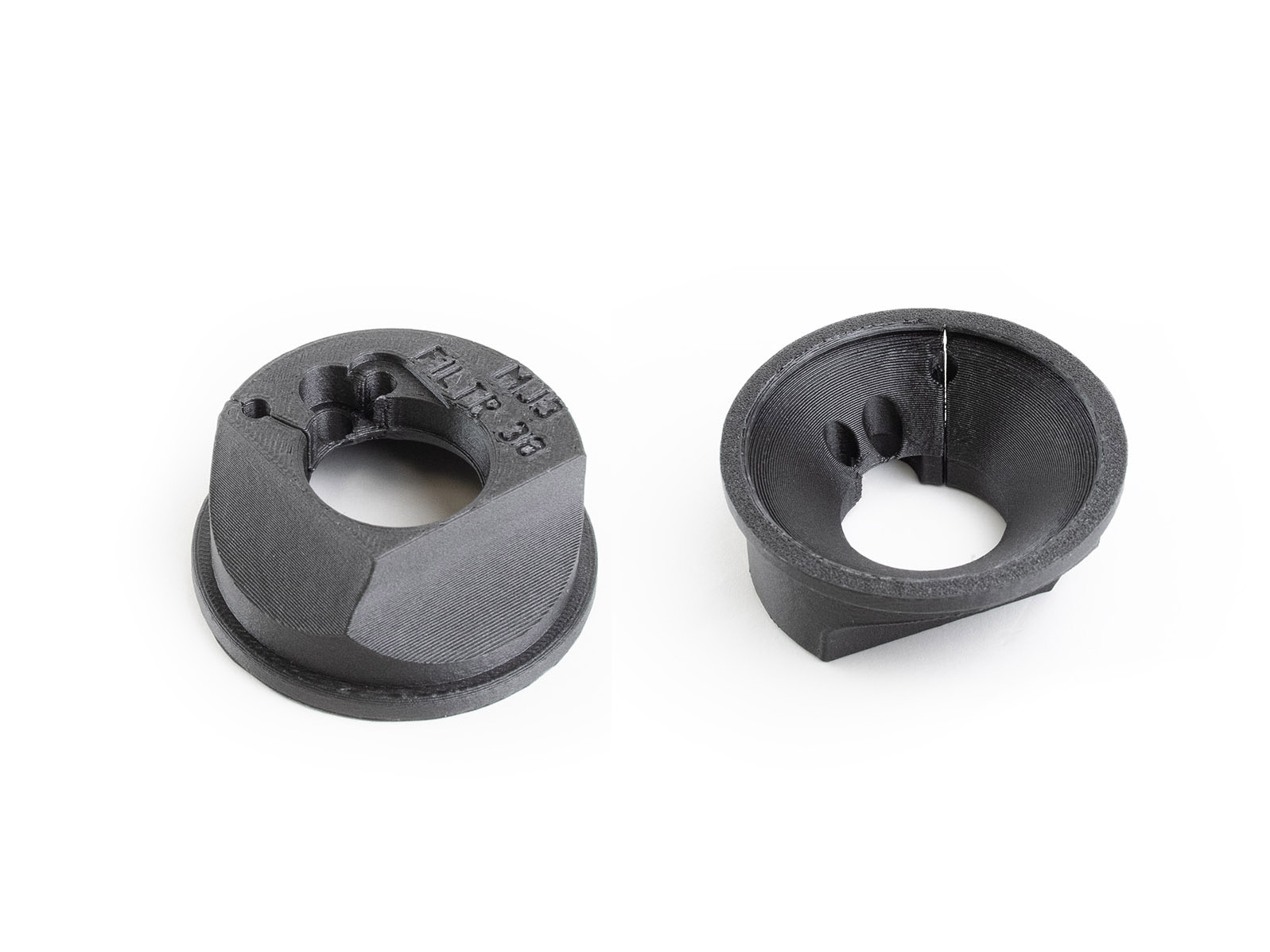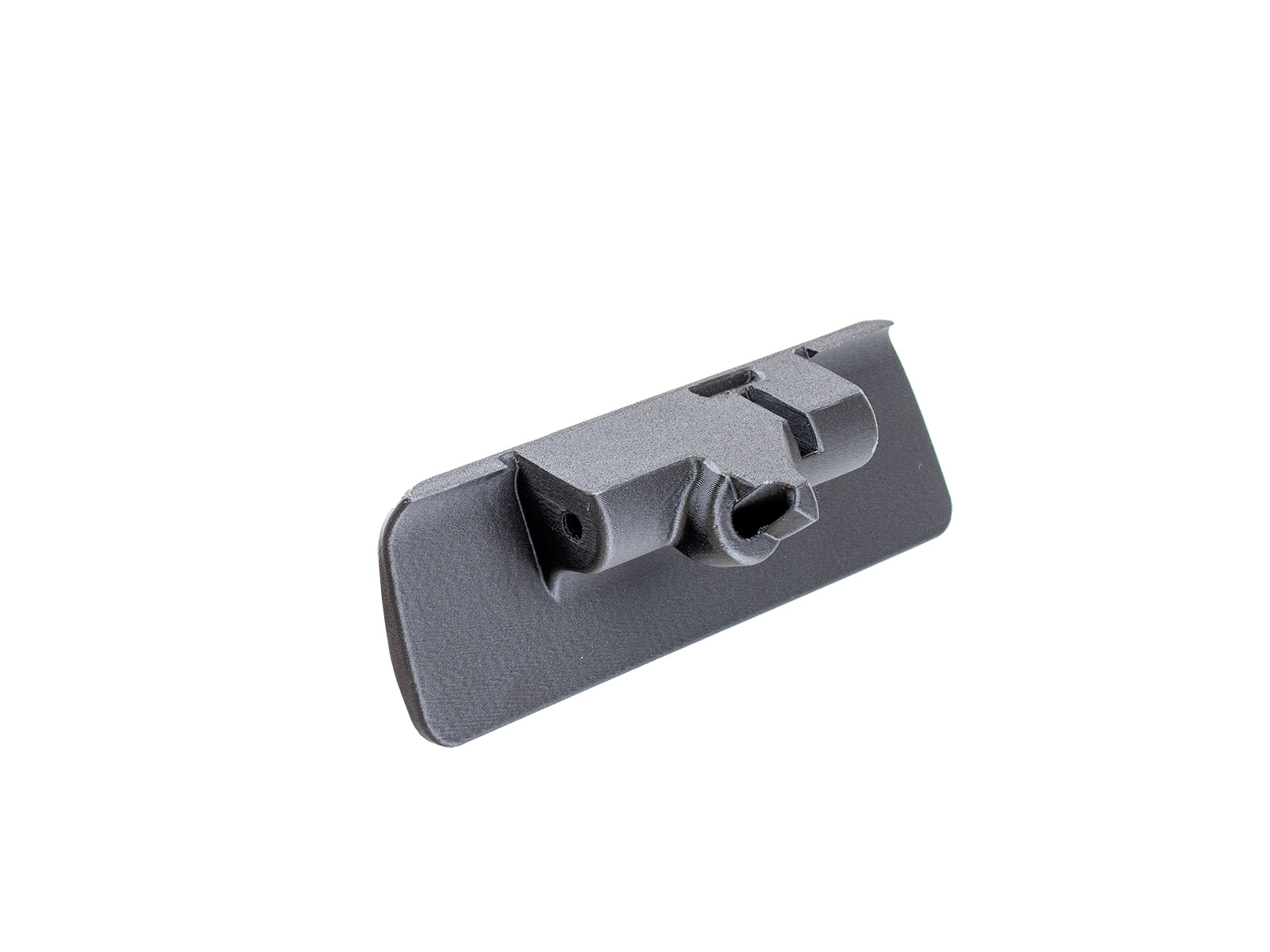PEKK-CF is an advanced thermoplastic filament combining excellent mechanical properties, high-temperature resistance, and chemical stability. This material is based on polyetherketoneketone (PEKK) with added carbon fibers, improving strength and toughness.
Due to its ability to print complex geometries with high precision, PEKK-CF filament is suitable for industrial and engineering applications such as aerospace components, automotive parts, medical implants, and prototypes.
Recommended nozzle temperature: 380 - 440°C
Recommended bed temperature: 135 - 150°C
|
Advantages |
Disadvantages |
|---|---|
|
✔ Extraordinary temperature resistance |
✖ High cost of filament |
|
✔ Excellent chemical and mechanical resistance |
✖ Requires adhesives to increase adhesion to the print bed |
|
✔ High precision and dimensional stability |
✖ Removing supports can be difficult |
|
✔ Low weight due to the presence of carbon fibers |
✖ Requires drying |
| ✔ Self-extinguishing material |
|
| ✔ Excellent insulating properties |
|
Best use
Lightweight and strong components in aerospace, engine parts and coolers in automotive, medical implants and tools, functional parts of machinery, valves, and pipes.
Tips for successful printing
It is essential to keep the filament dry, otherwise, its mechanical properties will significantly deteriorate. PEKK-CF is extremely hygroscopic and begins to absorb moisture from the air within 10 minutes, affecting the resulting quality and strength. Therefore, we recommend drying the filament for at least 4 hours at 130°C before printing and using a dry box (like the Prusa Pro Filament Drybox). Printing this material requires an enclosed heated chamber with a minimum temperature of 85°C or higher.
Heated chamber
An actively heated chamber is necessary to print this material with a temperature of 85°C or higher. A heated chamber is essential for printing high-temperature materials in FFF, due to several reasons:
- Prevents deformation: Maintains stable temperatures to reduce deformation and cracking.
- Improves layer adhesion: Supports stronger connections between layers.
- Preserves the properties of the material: Ensures proper crystallization and strength of the material.
- Prevents clogging: Prevents premature cooling of fibers and prevents problems with extrusion.
- Improves accuracy: Reduces thermal expansion and improves dimensional accuracy.
Print surface preparation
For printing, a special adhesive must be applied to the print bed (e.g., MAGIGOO HT) for the perfect first layer. We recommend using the adhesive in multiple layers.
Samples
 |  |
 |  |